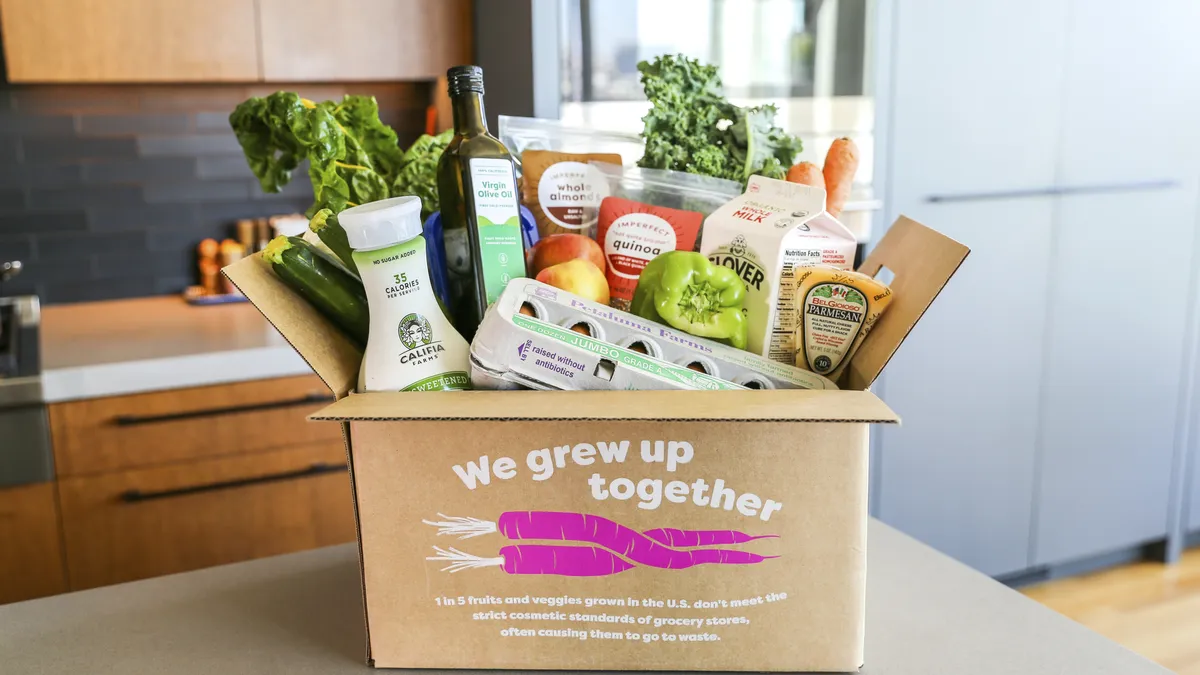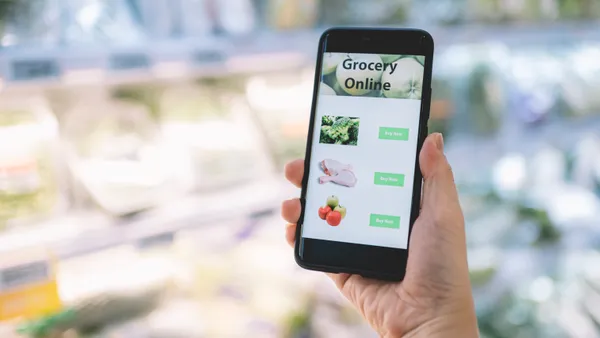Dive Brief:
- Online grocer Imperfect Foods has received $95 million in a Series D funding round, the company announced Thursday. It will use the funds to double capacity and product assortment in its existing facilities as well as further expand its private label lineup.
- The company, which has swiftly expanded beyond its core produce assortment, also announced three new personal care products under its private label line: a 3-in-1 soap, body butter and facial oil. This is Imperfect’s first extension into non-grocery products.
- Imperfect Foods experienced triple-digit growth in 2020 and finished the year with a revenue run rate above $500 million. It now has more than 350,000 members.
Dive Insight:
Five years after its founding as a marketplace for “ugly” produce, Imperfect Foods has built out its assortment and operations with the goal of becoming a one-stop grocery shop for customers nationwide.
The company now delivers to a large chunk of the continental U.S. using a membership model centered on regular weekly deliveries and personalized recommendations. Its assortment includes pantry staples, dairy, meat and seafood along with a fast-growing private label lineup introduced in 2019 that spans grocery and now personal care.
Imperfect’s new personal care products are all priced under $10 and include an avocado and honey body butter, rose facial oil and hydrating 3-in-1 soap. The items were developed to meet demand from their customer base and will be positioned to top off grocery orders.
The company’s leadership has extensive retail experience that underscores its mainstream ambitions. CEO Philip Behn, who took the top role in 2019, spent several years working for Walmart’s e-commerce division. Chief Merchandising Officer Martha Hale, who joined Imperfect last year, held management roles with Amazon, Trader Joe’s and Delhaize, while Chief Financial Officer Chuck Kurth held top roles with Art.com, which was acquired by Walmart’s e-commerce division in 2019, and Ross Stores.
At the same time, Imperfect is trying to project value and an environmentally conscious image. It promotes prices that are 30% less than those found at grocery stores and in customer-facing materials frequently discusses efforts to reduce food waste and improve its supply chain practices.
The company takes a personalized approach to shopping and tries to mine supply chain efficiencies by setting recurring order windows. Shoppers fill out a questionnaire when they sign up and get weekly product recommendations that they can directly add to their carts. Delivery costs between $4.99 and $8.99.
The pandemic has lifted the fortunes of other e-grocers and inspired some to open up shop. Thrive Market now counts more than 1 million members and just turned its first quarterly profit, while Fresh Midwest opened in the Chicago area last fall, aiming to fill the void that Peapod left behind when it shuttered in early 2020.













